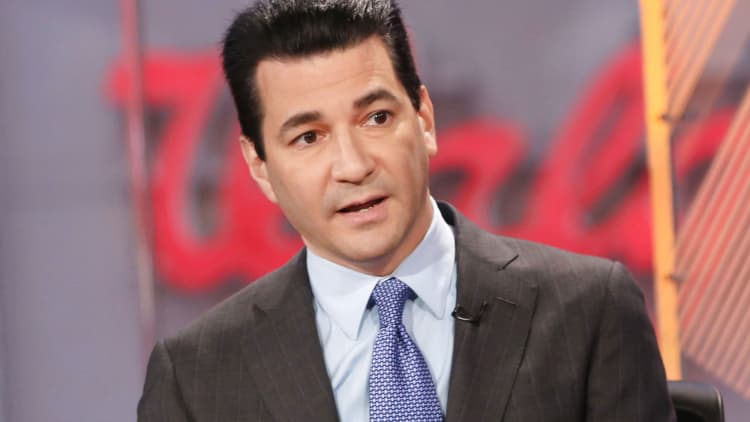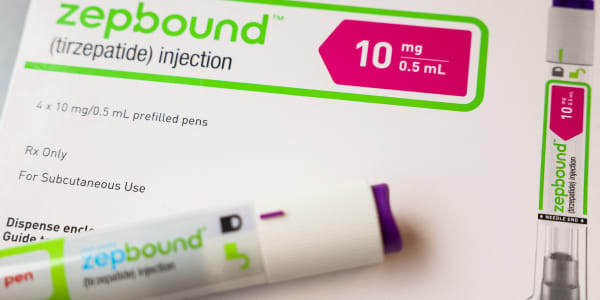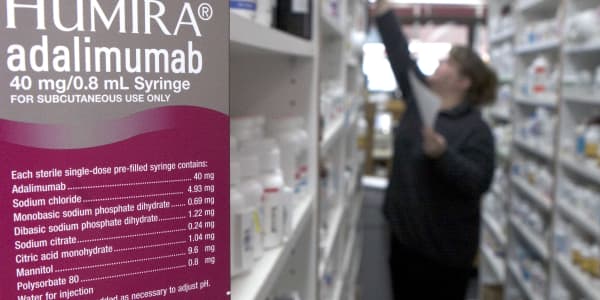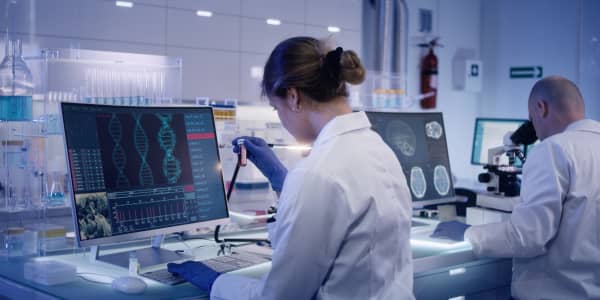Sorrento Therapeutics and Mount Sinai Health System in New York City have joined forces to develop an antibody cocktail they hope will shield against Covid-19 infection for up to two months. The treatment, called COVI-SHIELD, is designed to be administered as often as necessary, with each dose expected to provide antiviral protection for health care and other essential workers.
If approved by the FDA, it is anticipated that COVI-SHIELD will be offered as a prophylactic for those returning to work and as a therapeutic to those who have been exposed to SARS-CoV-2 (severe acute respiratory syndrome coronavirus 2), the virus that causes Covid-19. It can also be used for the population at large as a treatment for those who may have been exposed to the disease.
"We're working with pharma and biotech partners, such as Sorrento, to bring much needed therapies to the clinic," said Erik Lium, executive vice president and chief commercial innovation officer of the Mount Sinai Health System.
The company is now completing all investigational new drug filing requirements for the triple-antibody combination therapy and expects to commence Phase 1 trials of the drug candidate in the third quarter of 2020. If successful, it would ramp up production so it could produce millions of doses by year-end in its New Jersey and European manufacturing facilities.
Sorrento Therapeutics says that each dose of COVI-SHIELD will deliver a cocktail of three neutralizing antibodies that together would recognize three unique regions of the SARS-CoV-2 Spike protein to ward off the disease.
This therapy is designed to be resistant to future virus mutations and, if approved, should be made available in support of testing, tracing, vaccination and other therapeutic approaches to allow for efficient management of viral infection by protecting those most at risk for up to two months at a time.

Utilizing an FDA-approved diagnostic test under Emergency Use Authorization, Mount Sinai researchers have screened approximately 15,000 Covid-19 convalescent patients for highly concentrated, virus-neutralizing antibodies. The plasma of a few dozen of the most potent neutralizing sera will be provided to Sorrento to use in identification and production of monoclonal antibodies with potential neutralizing activity against the deadly virus.
Debate over antibodies
Mount Sinai is among many health institutions testing for antibodies among the New York City population. Last week Mayor Bill de Blasio announced that New York City will offer free coronavirus antibody testing to more than 150,000 health-care workers and first responders on the front line of the outbreak to determine if they've likely been infected with Covid-19 and recovered.
"Antibody testing brings a lot to the table, and our goal is to reach a lot of people who would like to take advantage of it on a voluntary basis, of course," de Blasio said.
An antibody test shows whether someone has been exposed to or potentially had the coronavirus and developed the antibodies to fight the infection. It doesn't guarantee immunity, but physicians say a positive antibody test indicates that a patient may have some level of protection against reinfection.
The FDA is currently trying to discern what level of immunity people have after they have recovered from the virus and if their antibodies offer an effective treatment. In April it launched a nationwide effort to develop experimental blood-related therapies to treat Covid-19 convalescent plasma and hyperimmune globulin donated by people who have recovered from the virus.
Many hospitals like Mount Sinai and organizations like the Red Cross are asking recovered Covid-19 patients for blood and blood plasma donations. Early indications show promise, as some seriously ill patients have recovered after getting the blood plasma from other recovered patients.
"It is our belief that as we reopen the country and the economy, we will see local flare-ups of infectious spread of Covid-19. Unfortunately, with coronaviruses, mutations are part of the equation and could render therapies ineffective over time," says Dr. Henry Ji, chairman, president and CEO of Sorrento Therapeutics. "It is our intention to develop a triple-antibody prophylactic and therapeutic regiment that would shield health-care workers and at-risk patients.
Sorrento Therapeutics — the biopharma company that has a history in developing treatments for cancer, arthritis and pain management — is not the only biopharma company pursuing an antibody cocktail therapy for Covid-19. Regeneron, Distributed Bio and other companies are working on similar initiatives that can be used for protection against the virus.
Late-stage coronavirus drugs
The company is also working on a range of other products to fight the coronavirus pandemic.
Beyond antibody therapy, it is preparing for a Phase 1 clinical trial of resiniferatoxin (RTX) in COVID-19 patients with advanced disease progressing to lung and heart failure. It is.a drug that has been in development for five years and is used to treat osteoarthritis, late-stage cancer and chronic pain.
The drug is derived from a naturally occurring chemical found in resin of a cactus-like plant called Euphorbia, commonly found in Africa. It is a potent form of capascin, 100 times hotter than the world's hottest pepper, known as the Carolina reaper.
RTX works by attaching to a specific part of the cell membrane of some nerves that cause the body to feel pain and also are believed to modulate inflammation processes. It acts as a molecular scalpel, deactivating the targeted nerves, severing the connection between the pain source and the brain, which leads to potentially decreased local inflammation.
It has been reported that Covid-19 lung changes are associated with an excessive immune response and uncontrollable inflammation. RTX could interrupt this inflammatory nerve signal transmission without affecting other key signals responsible for pressure sensitivity, motor coordination, or acute pain signals that rely on different nerves not targeted by the drug.
Interrupting the nerve signal might break the inflammation cycle. In a study in which the excessive immune response caused a bacterial infection in rodents was blocked, there was a dramatic decrease in deaths. While the attacking agent for Covid-19 might be different, the inflammatory process remains the same.
"The problem with Covid-19 is that the respiratory virus triggers an inflammation explosion in the nerves of the lungs that leads to fibrosis," says Sorrento's Ji. "It is called a cytokine storm, and that is what is killing people." As he explains, fibrosis causes scarring of the lungs and difficulty in breathing. RTX targets and blocks the nerves in the lungs that cause this response. "The key is to break this vicious cycle so the lungs can recover."
Dr. Harold Minkowitz, a physician at Memorial Hermann Medical Center in Houston, who has done research on vaccines and pain management since 1991, was involved in two clinical trials of RTX. One was to see how the drug worked on cancer patients. The other was to see if it helped patients with osteoarthritis.
"The results were pretty dramatic," he says. "After one injection, arthritic patients could walk and climb stairs. Cancer patients who had been immobilized in severe pain were able to walk and be pain free. One dose lasted for months."
As he explains, RTX works on specific nerve receptors that trigger inflammation and cause pain.
A multipronged approach
With months away from the launch of a universal vaccine for the coronavirus, the most important medical breakthrough needed right now is a drug that can stop the ravages of acute respiratory distress triggered by Covid-19. This would curb the number of patients that need to be put on a ventilator. It would cut the death rate — considering that 80% of individuals that are intubated and put on such machines in intensive care die.
The problem with Covid-19 is that the respiratory virus triggers an inflammation explosion in the nerves of the lungs that leads to fibrosis. It is called a cytokine storm, and that is what is killing people.Dr. Henri Jichairman, president and CEO of Sorrento Therapeutics
RTX is just one of many indirect therapies pharmaceutical companies are developing to mitigate the effects of Covid-19 that include breathing difficulty and inflammatory responses. Without other direct treatments for the virus, and with concerns about health-care systems being overwhelmed, such treatments are considered essential.
Regeneron Pharmaceuticals and Sanofi are working on a drug called Kevzara. The biotechnology drug targets a pathway known as interleukin-6 or IL-6, which can affect inflammation. It's already approved for rheumatoid arthritis and could help very sick Covid-19 patients in respiratory distress.
On Monday it was reported that Regeneron and Sanofi's rheumatoid arthritis drug showed promise only for treating the sickest coronavirus patients in a clinical trial. It was not beneficial for patients with less-advanced disease.
At the same time, Roche and Chugai Pharmaceutical are studying Actemra, to be used alone or with the flu drug Avigan. Actemra is an arthritis medication that also targets IL-6, like Kevzara does. Roche, working with the FDA and BARDA — Biomedical Advanced Research and Development Authority — in April started a late-stage trial in over 300 hospitalized Covid-19 patients with severe pneumonia.
New Jersey-based BioAegis Therapeutics, which focuses on developing therapies for infectious, inflammatory and degenerative diseases, is awaiting FDA and multicountry regulatory approval to start Phase 2 trials of its plasma gelsolin therapy. Decades ago the Harvard lab of Thomas Stossel, co-founder of BioAegis and former head of experimental medicine at Brigham and Women's Hospital in Boston, discovered gelsolin, an abundant, naturally occurring, circulating protein in the human body that is depleted in severe inflammatory conditions. BioAegis believes that restoring a recombinant human form of plasma gelsolin in the body has enormous potential to prevent the lethal ravages of inflammation caused by Covid-19. BioAegis recently completed a successful Phase 1b/2a clinical trial in hospitalized pneumonia patients.
For more in-depth coverage from our CNBC anchors and reporters with health-care CEOs and industry leaders, request to join the May 12 Healthy Returns Virtual Summit. Visit https://www.cnbc.com/healthy-returns/ to learn more.





